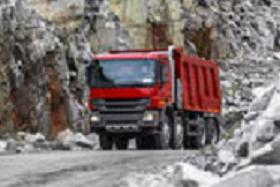Solid Waste Registration
 Businesses wishing to transport solid waste in New Jersey are required to strictly comply with the registration process governed by the New Jersey Department of Environmental Protection. Our attorneys help solid waste haulers in complying with these requirements, and obtaining approval to haul solid waste in New Jersey.
Businesses wishing to transport solid waste in New Jersey are required to strictly comply with the registration process governed by the New Jersey Department of Environmental Protection. Our attorneys help solid waste haulers in complying with these requirements, and obtaining approval to haul solid waste in New Jersey.
This is a brief overview of the solid waste registration and application process with the NJDEP.
Is it “Solid Waste?”
Under New Jersey solid waste law, the first thing is to determine whether or not your company intends to haul “solid waste.” Generally speaking, “solid waste” is defined by the New Jersey Solid Waste Management Act and the NJDEP’s regulations as any garbage or refuse, including:
- Municipal Solid Waste, which originates from stores, businesses or homes, etc.
- Industrial Waste, non-hazardous waste which results from a manufacturing process
- Bulky Waste, including construction and demolition debris (“C&D”), tires, trees, appliances, etc.
- Vegetative Waste, produced by farms, nurseries, and crop residues such as leaves.
- Septic Tank Cleanout Waste, pumped out of cesspools and septic tanks.
- Incinerator Ash, including incinerator ash containing solid waste.
- Processing Waste, from processing plants, packing plants, etc.
- Semi-Liquids, which are defined as solid matters which are “suspended in a liquid.”
- Dry or Liquid Sludge, which is generated by sewage treatment plants.
- Asbestos/Asbestos Containing Waste, which is a separate subcategory of dry industrial waste.
Transporters Versus “Self-Generators.”
Next, solid waste haulers need to determine whether or not they are “self-generators,” which carries far less stringent requirements than those which transport solid waste for others. Transporters transporting their own waste are not required to go through the A-901 application process with the New Jersey Department of Environmental Protection. This includes people transporting their own household garbage. This also includes businesses transporting their own waste, such as a construction contractor with its own garbage container. However, if that contractor allows any garbage to be placed in its container it has not generated the waste itself (ie., “self-generated”), and so it loses its status as a “self-generator.” This means that if there are multiple contractors on the job the contractor can only allow its own employees to use the compactor. If anyone who is not an employee of the company puts any waste into the container the contractor is no longer a “self-generator” and is fully subject to registration and regulatory requirements of the New Jersey Department of Environmental Protection as a solid waste transporter.
A self-generator is required to file a registration statement and obtain decals which it must display on any vehicles transporting solid waste, but is largely exempt from the New Jersey Department of Environmental Protection’s other regulatory requirements. Decals are obtained from the DEP. The application must be submitted with an affidavit demonstrating that the hauler meets the requirements for the exemption.
A transporter is not regulated if it drives through New Jersey from one state to another, and does not “stopover,” drop off waste, switch containers, collect or dispose of solid waste within the state. Governmental entities are also exempt from regulation.
Requirements for Transporters
Finally, you need to determine your company’s requirements and make sure that you are following them. If you are a solid waste transporter you need to do the following.
First, the hauler must file an A-901 disclosure package and application with the New Jersey Attorney General’s A-901 Unit. This is part of the New Jersey Department of Law and Public Safety. The application is quite lengthy, and omitting or misstating anything on the application can have severe consequences. The Attorney General’s office and New Jersey State Police will then conduct an intensive background investigation. The reason the application and investigation are so complicated is that New Jersey wants to ensure that the hauler has no ties to organized crime, which had been a problem in years past.
If the background investigation is successful and the A-901 application is approved, the hauler must then obtain a Certificate of Public Convenience and Necessity (“CPCN”), which is a separate application process with the New Jersey Department of Environmental Protection’s Economic Regulation Office.
After the CPCN has been received, the hauler must apply to the DEP’s Licensing and Registration Unit to obtain decals for the hauler’s vehicles, containers and compactors.
Contact Us
Our attorneys guide solid waste companies through the application and registration process with the New Jersey Department of Environmental Protection and the New Jersey Attorney General’s Office, including completing the application and training requirements. Call us at (973) 890-0004.
 New Jersey Lawyers Blog
New Jersey Lawyers Blog

